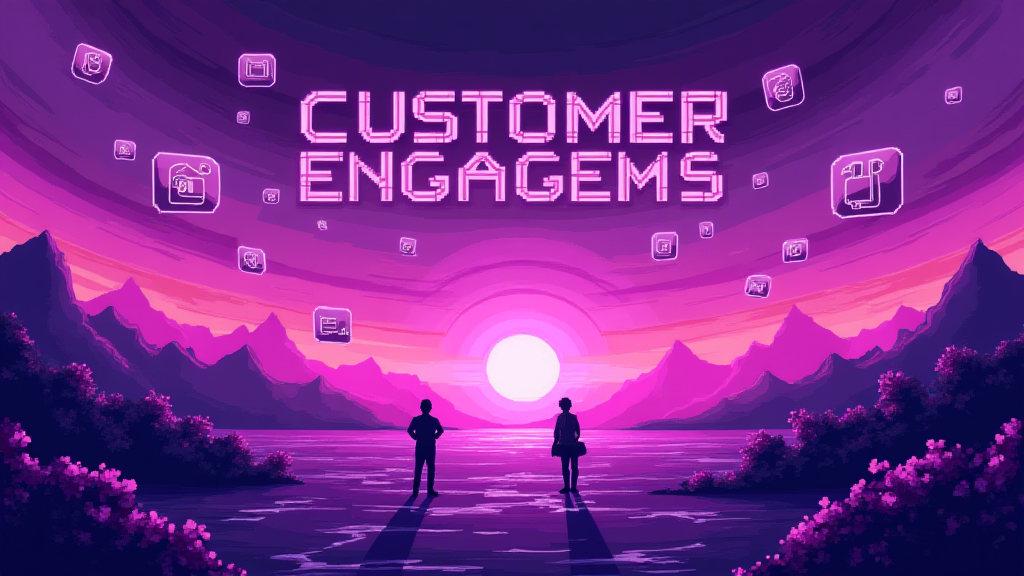Customer Engagement: Driving Business Success

Published on: October 01, 2024
Customer engagement is the ongoing interaction between a company and its customers, fostering a meaningful relationship that extends beyond mere transactions. It encompasses all touchpoints in the customer journey, from initial awareness to post-purchase support, aiming to create lasting connections that drive loyalty, satisfaction, and business growth.
🤝 Why Customer Engagement Matters
In today's competitive business landscape, customer engagement has become a critical factor in determining success. Here's why it's so important:
- Increased Customer Loyalty: Engaged customers are more likely to remain loyal to your brand.
- Higher Customer Lifetime Value: Engaged customers tend to make more frequent purchases and spend more over time.
- Improved Brand Reputation: Positive engagement experiences lead to better word-of-mouth marketing.
- Valuable Customer Insights: Engagement provides opportunities to gather feedback and understand customer needs.
📊 Key Customer Engagement Metrics
To effectively measure and improve customer engagement, businesses often track the following metrics:
| Metric | Description |
|---|---|
| Customer Satisfaction Score (CSAT) | Measures overall satisfaction with a product or service |
| Net Promoter Score (NPS) | Indicates likelihood of customers recommending your brand |
| Customer Effort Score (CES) | Assesses ease of customer interactions with your company |
| Retention Rate | Percentage of customers who continue to use your product or service |
| Engagement Rate | Measures customer interactions across various channels |
🛠️ Customer Engagement Tools and Strategies
To enhance customer engagement, businesses can employ various tools and strategies:
- Customer Engagement Platforms: Centralized systems for managing customer interactions across multiple channels.
- Personalization: Tailoring content, offers, and experiences to individual customer preferences.
- Omnichannel Communication: Providing consistent experiences across all customer touchpoints.
- Customer Feedback Loops: Regularly soliciting and acting on customer input.
- Loyalty Programs: Rewarding customers for their continued business and engagement.
💡 Best Practices for Customer Engagement
To maximize the effectiveness of your customer engagement efforts:
- Understand your customers' needs and preferences
- Provide value beyond your core product or service
- Be responsive and accessible across all channels
- Use data-driven insights to personalize interactions
- Continuously measure and optimize your engagement strategies
🚀 The Future of Customer Engagement
As technology evolves, so do customer engagement strategies. Some emerging trends include:
- AI-powered chatbots and virtual assistants
- Augmented and virtual reality experiences
- Voice-activated customer service
- Predictive analytics for personalized engagement
By staying ahead of these trends, businesses can ensure they're well-positioned to meet changing customer expectations and maintain strong engagement levels.
🤔 Questions to Consider
As you think about implementing or improving customer engagement in your Sales or Marketing stack, ask yourself:
- How well do we understand our customers' journey and pain points?
- Are we leveraging data effectively to personalize customer interactions?
- How can we create more meaningful touchpoints throughout the customer lifecycle?
- What tools or technologies could help us streamline and enhance our engagement efforts?
- How can we better align our sales, marketing, and customer service teams to provide a cohesive engagement experience?
For further insights, check out our customer engagement score and explore the engagement model to enhance your strategies.
















